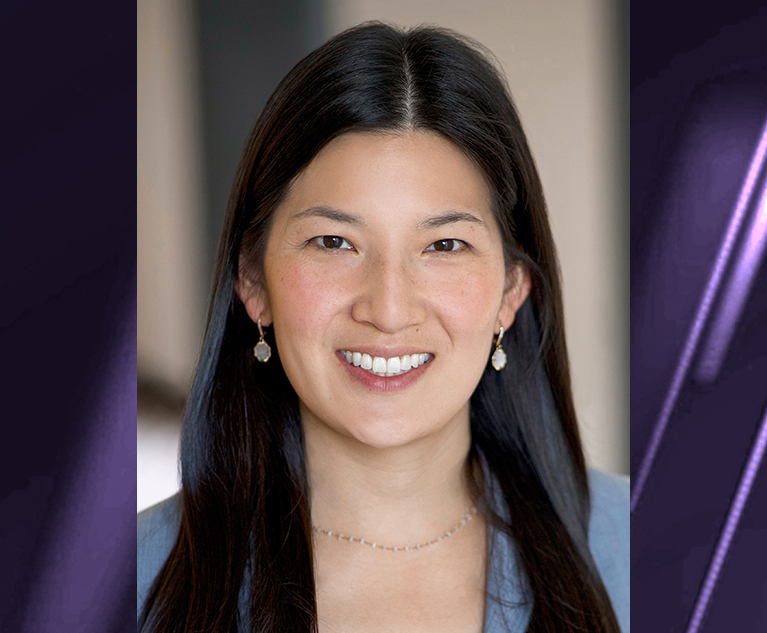
August 26, 2024 | New York Law Journal
Rising Star: Christina C. MaChristina Ma is a partner at Wachtell, Lipton, Rosen & Katz. Her practice focuses on mergers, acquisitions and representing clients before the U.S. and international antitrust authorities.
By NYLJ Staff
2 minute read

August 26, 2024 | New York Law Journal
Rising Star: Evan MinsbergEvan Minsberg is a partner at Morrison Foerster. He has played a pivotal role in counselling some of the most innovative and well known companies and banks active in the fintech and payments industries.
By NYLJ Staff
2 minute read

August 26, 2024 | New York Law Journal
Rising Star: Amanda LevineAmanda Levine is an associate at Davis Wright Tremaine. She has been a key player in addressing some of the most cutting-edge and pressing issues facing the media today.
By NYLJ Staff
2 minute read

August 26, 2024 | New York Law Journal
Rising Star: Mark JansenMark Jansen is an intellectual property partner at Fenwick & West who embodies a new generation of IP specialist.
By NYLJ Staff
2 minute read

August 26, 2024 | New York Law Journal
Rising Star: Kerri-Ann LimbeekKerri-Ann Limbeek is a partner at Desmarais. She has led some of patent litigation industry's most high-profile cases.
By NYLJ Staff
2 minute read

August 26, 2024 | New York Law Journal
Rising Star: Adam HuntAdam Hunt is a partner at Morrison Foerster, representing consumer products companies, financial institutions, and technology firms in class action and complex commercial disputes.
By NYLJ Staff
2 minute read

August 26, 2024 | New York Law Journal
Rising Star: Dustin GuziorDustin Guzior is a partner in Sullivan & Cromwell's litigation group and co-head of the firm's intellectual property & technology litigation practice.
By NYLJ Staff
2 minute read

August 26, 2024 | New York Law Journal
Rising Star: Kyle HarrisKyle Harris is a partner at Cleary Gottlieb. His practice focuses on public and private mergers and acquisitions and corporate governance matters.
By NYLJ Staff
2 minute read

August 26, 2024 | New York Law Journal
Rising Star: Devon GoodrichDevon Goodrich is a senior counsel at the New York City Law Department. Her practice encompasses climate change, sustainability, and environmental justice.
By NYLJ Staff
3 minute read

August 26, 2024 | New York Law Journal
Rising Star: Helam GebremariamHelam Gebremariam is a partner at Cravath, Swaine & Moore. She is Cravath's first Black woman litigation partner and plays a significant role in the firm's inclusion efforts.
By NYLJ Staff
2 minute read
Trending Stories
- 1$1.9M Settlement Approved in Class Suit Over Vacant Property Fees
- 2Former Wamco Exec Charged With $600M 'Cherry-Picking' Fraud
- 3Stock Trading App Robinhood Hit With Privacy Class Action 1 Month After Alleged Data Breach
- 4NY High Court Returns Fired Priest's Discrimination Claim to State Agency
- 5Digging Deep to Mitigate Risk in Lithium Mine Venture Wins GM Legal Department of the Year Award
More from ALM
- Legal Speak at General Counsel Conference East 2024: Match Group's Katie Dugan & Herrick's Carol Goodman 1 minute read
- Legal Speak at General Counsel Conference East 2024: Eric Wall, Executive VP, Syllo 1 minute read
- Legal Speak at General Counsel Conference East 2024: Virginia Griffith, Director of Business Development at OutsideGC 1 minute read



